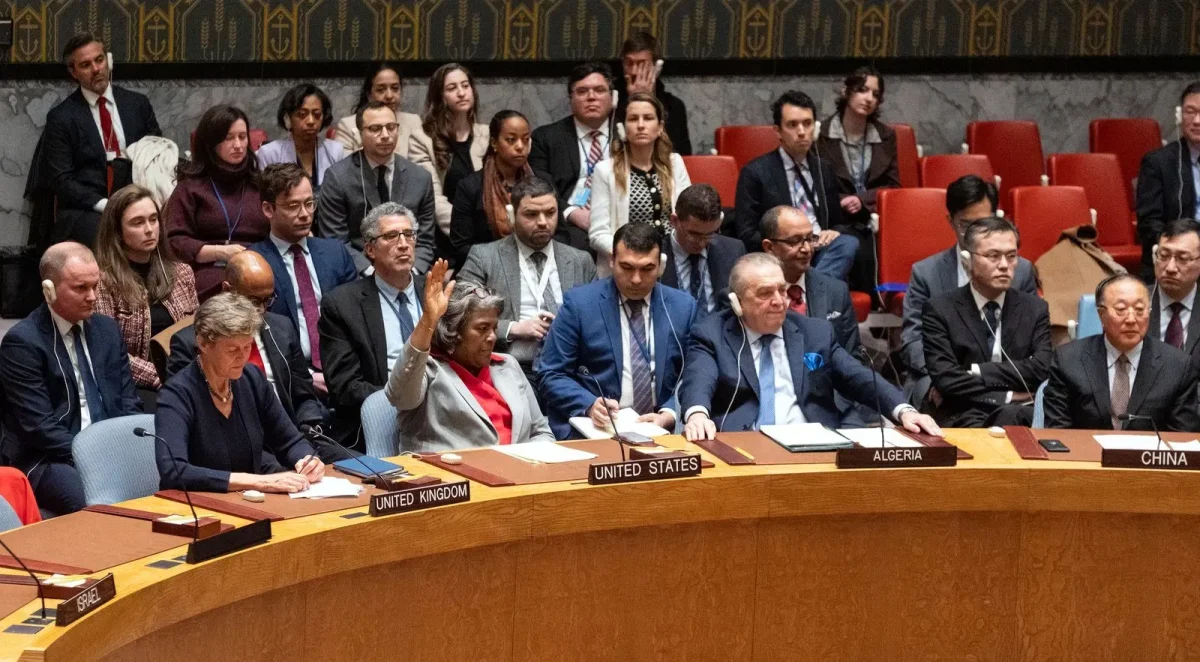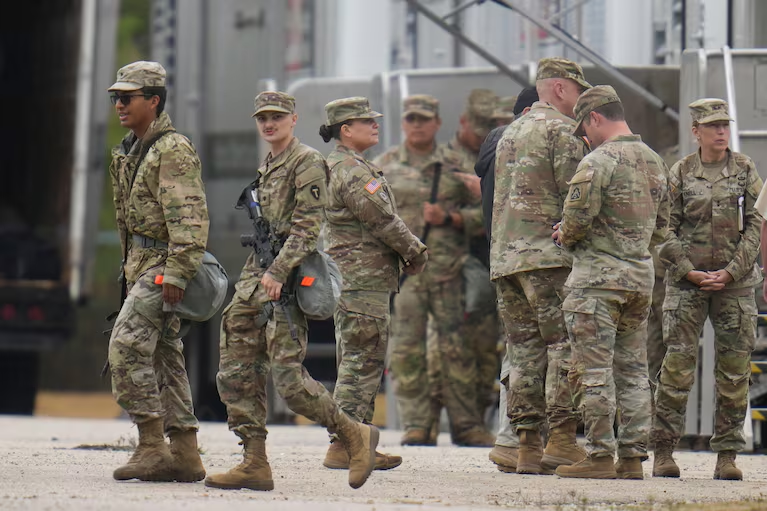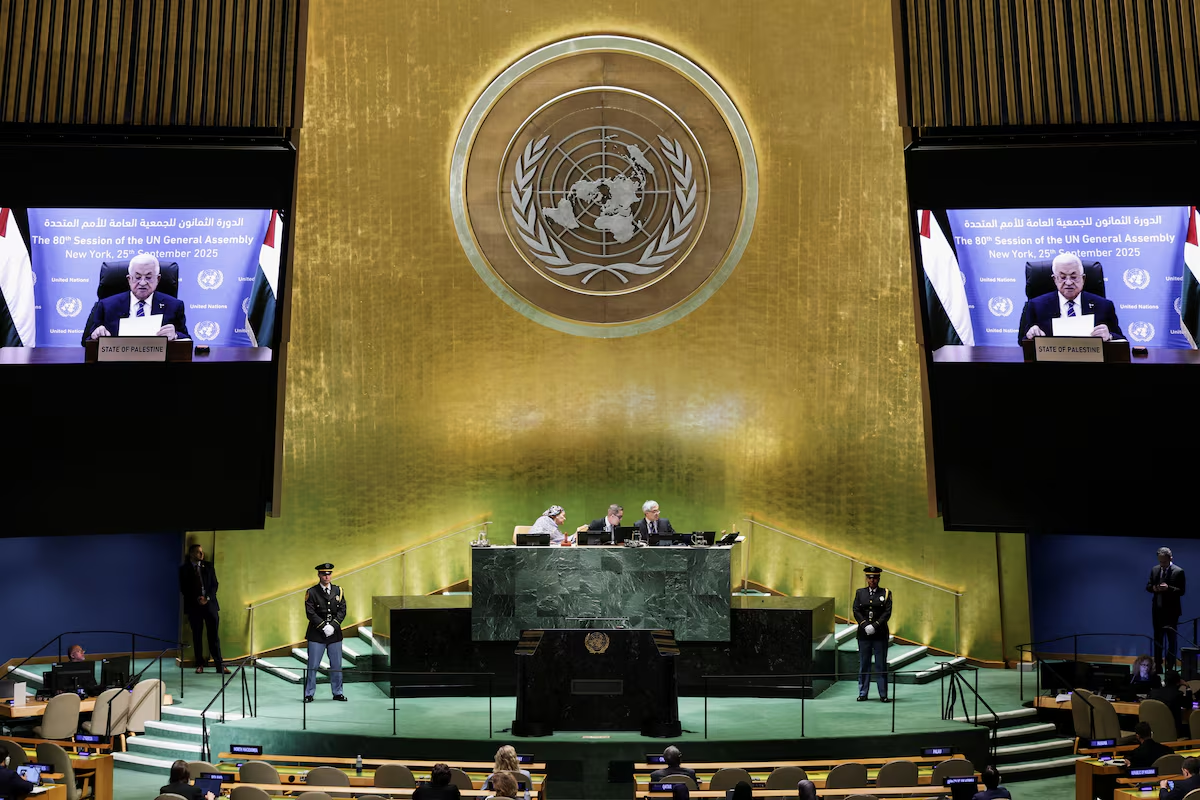With the war in Gaza raging on, the U.N. Security Council voted for a resolution calling for an immediate ceasefire, and for all hostages to be released. The resolution calls into question the moral implications of the war, the enforceability of a ceasefire order and the future relationship between the United States and Israel.
The resolution passed with 14 voting in favor, zero voting against and only one nation, the United States, choosing to abstain. The one-page resolution lays out in broad terms the Security Council’s desires.
In the resolution, the Security Council demands an immediate ceasefire for the month of Ramadan, a release of all hostages ensuring humanitarian aid and an increase of humanitarian assistance to all citizens of the Gaza strip.
It is important to note that the resolution specifies “for the month of Ramadan respected by all parties.” This means that this is not a demand for a permanent ceasefire; although it does include hopeful language about the ceasefire continuing past Ramadan, and that both Israel and Hamas are being held to the demands made in the resolution.
Some have criticized the wording of the resolution, calling it vague.
“The word ‘lasting’ could be interpreted in various ways… we very much want to believe that this wording will be used in the interest of peace… the word permanent would be more precise,” Vassily Nebenzia, a Russian United Nations representative said, referring to the resolution’s language about the ceasefire following Ramadan.
Still, the resolution passed with no votes against it. Even with some nations expressing concerns, most still saw fundamental appeal in the rhetoric of the resolution.
Despite this, indeed, the resolution does not draw a direct connection between the release of hostages, and the ceasefire. This led many to believe that the demands would not be met.
“Your demand for a ceasefire, without conditioning it on the release of the hostages, not only is not helpful but it undermines the effort to secure their release,” Gilad Erdan, ambassador and representative of Israel to the U.N. said.
Erdan said that there was a moral contradiction between calling for the release of hostages and not making it necessary for the ceasefire. Erdan expressed concerns that this would make it easier for Hamas to get a ceasefire and keep the hostages.
“When such atrocities are being committed in broad daylight against defenseless civilians, including women and children, the right thing to do… is to put an end to it,” Riyad Mansour, observer for the observer State of Palestine for the United Nations, said.
Regardless of the merit of the resolution, it is debatable whether it is legally binding. Many have claimed that it is not, raising questions on what the purpose of the resolution is if no legal enforcement can be made.
During a White House press briefing, National Security Communications Advisor Admiral John Kirby expressed that the resolution was non-binding.
In contrast to this position, taken by the United States, the U.N. Secretary-General made clear that the conditions of the resolutions must be met, strongly implying that the resolution was indeed binding.
Despite the claims of the U.N. and other nations, Israel has made public that it has no intention of committing to a ceasefire. Instead, the state remains committed to military operations until its goals are met. Since the resolution, Israel has launched new attacks on Gaza.
While the legal ramifications of the resolution are still uncertain, the political impact was felt immediately when Israeli Prime Minister Benjamin Netanyahu canceled a delegation visit to Washington after the U.S. refused to veto the resolution.
Netanyahu felt that the U.S. had failed to properly support Israel, and thus decided to send a message.
“In light of the change in the American Position,” Prime Minister Netanyahu’s office said regarding why the visit was canceled.
Despite the perception of the Israelis, some United States government officials still offer support to Israel.
“We still have Israel’s back… we are still providing tools, capabilities, and weapons systems so that Israel can defend itself,” Kirby, national security advisor for the United States, said.
The lack of a change in U.S. policy makes some believe that Netanyahu’s response was motivated by Israel’s internal politics. However, this has not been confirmed.
With the conflict in Gaza being an intense, emotional issue for the entire international community, the questions of how to resolve the conflict continue, with all future events remaining uncertain.













